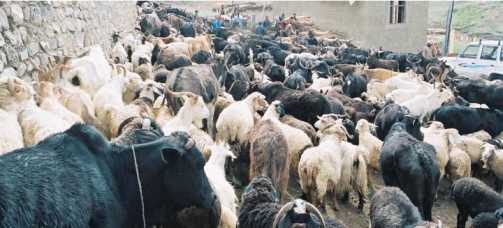Researchers at the Centre for Ecological Sciences (CES), Indian Institute of Science (IISc), have found that grazing by livestock leads to lower carbon storage in soil compared to grazing by wild herbivores.
In a study conducted in the Spiti region of the Himalayas and which was published in Global Change Biology, CES researchers found that this difference appears to be due to the use of veterinary antibiotics such as tetracycline on livestock.
Released through dung
The researchers said that when released into the soil through dung and urine, these antibiotics alter the microbial communities in soil in ways that are detrimental for sequestering carbon.
“Today, livestock are the most abundant large mammals on earth. If the carbon stored in soil under livestock can be increased by even a small amount, then it can have a big impact on climate mitigation,” said Sumanta Bagchi, Associate Professor at CES and corresponding author of the study.
Previous study
In a previous study, the researchers had shown how grazing by herbivores plays a crucial role in stabilising the pool of soil carbon in the same region. In the current study, they set out to ask the question: Are livestock such as sheep and cattle similar or different in how they affect the soil carbon stocks compared to their wild relatives such as the yak and ibex?
To answer this, the researchers studied soils over 16 years in areas grazed by wild herbivores and by livestock respectively, and analysed them for various parameters including microbial composition, soil enzymes, carbon stocks, and the amount of veterinary antibiotics.
Carbon use efficiency
The study states that although soils from the wild and livestock areas had many similarities, they differed in one key parameter called carbon use efficiency (CUE), which determines the ability of microbes to store carbon in the soil. The soil in the livestock areas had 19% lower CUE.
Mr. Bagchi added that antibiotic usage in pastoral ecosystems like Spiti is fairly low and that the situation could be worse in areas where livestock are reared at large scales where they are often given antibiotics even when they are not sick.
Antibiotics such as tetracycline are long-lived and can linger in the soil for decades, the study adds.
The Hindu March 9th 2023

